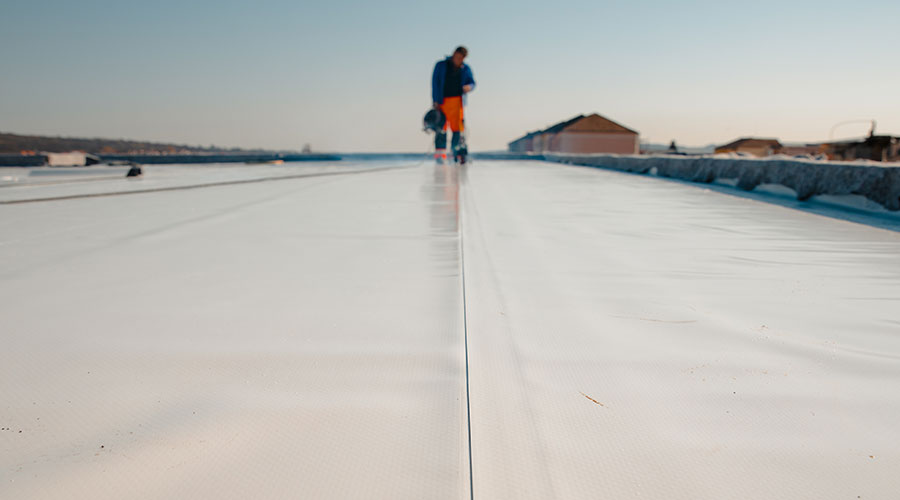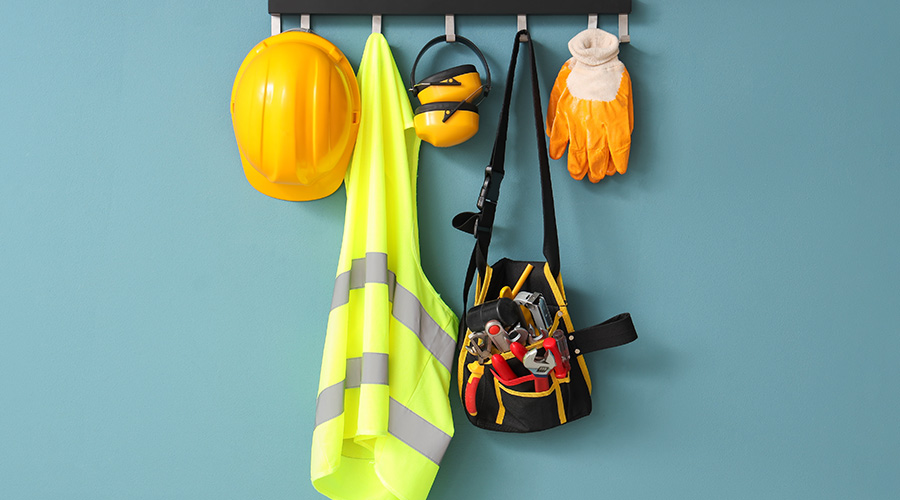Personal Protective Equipment Plays a Major Role in Job Safety
PPE ensures that facility managers can perform their jobs safely and effectively.
By Sara Myers-Hogshead, Contributing Writer
Personal Protective Equipment (PPE) is essential for many workers across various industries, including facilities management. The equipment ensures that FMs can perform their jobs safely and effectively. However, different types of PPE can vary based on individual needs and gender.
Amy Roosa, founder of the nonprofit, The Safety Rack founded the organization to help fill the equity gap between men and women who need PPE every day to do their jobs safely. Through her research, Roosa has found that many women in different industries struggle to find PPE that fits them well.
“Originally, The Safety Rack was just going to be this social media platform where I shared what a lot of these [PPE] brands were, because back in 2018, I was having a lot more conversations with women,” she says. “They're like, ‘Nothing fits me, and it's becoming a danger.’”
Roosa notes that the industry currently offers unisex PPE, but this should not be the norm as over 8 million women in the industry require PPE that accurately fits their needs. To find the product that works best for them, industry women need access to all products currently on the market, she says. The Safety Rack’s directory of PPE and workwear includes products such as footwear, flame-resistant clothing, and maternity workwear.
“There's a lot that needs to be changed in the PPE world, not just with employers, but with the distributors, manufacturing, even down to how the industry makes these standards, but also how the textile industry creates this [product],” she says.
The Safety Rack launched its equity report from surveys conducted in 2024. The goal was to focus on research and education advocacy, with the misconceptions and misinformation the nonprofit found in the safety space, Roosa says.
To produce their survey, Roosa’s nonprofit conducted questionnaires globally. About 505 women were surveyed across multiple industries, including construction (33.5 percent), manufacturing (12.3 percent) and mining (7.5 percent).
When asked, “Do you believe the current range of PPE options for women is diverse enough to accommodate various body shapes and sizes?” 467 respondents answered no, and 37 answered yes.
The survey also asked: “Have you ever had to modify or adjust standard-issue PPE to better fit your body, and if so, how often?” Respondents answered: often (255), sometimes (166), never (45), and rarely (22).
Another question asked was: “In your opinion, is it the employer's responsibility to provide a variety of PPE sizes specifically designed for women?” 478 answered yes, and 27 answered no.
Through her research, Roosa found that the common problem is that product distributors lack accurate training to help identify and educate employers on the range of products they need for their workforce.
“They may not know the product is there because they're either being told, we just don't carry it, or they think that because they are being carried, it's gonna cost more,” she says. “And that was because, like 10 years ago, it was gonna cost them a lot more.”
Personal experience makes a difference
From her own experience, Roosa has had issues with the PPE she used on a job. Once, while wearing a safety vest, the top was caught on a door when she was rushing out of a room. She was slammed back, and bruises were left on her rib cage.
“These are the lived experiences, but there's more subtle design [choices] that we're taking note of,” she says.
Through her conversations with men in the industry, Roosa said men have also expressed how PPE is not adequate for them either. Her main goal is improving women’s PPE through research and design, but Roosa would also like to improve PPE in general for everyone.
“A lot of it comes from the weight of the equipment, some of the durability, or how long it can last,” she says. “I identified that the employers chose the wrong PPE, that they haven't done the right job hazard assessment, and researched the PPE that they need to be able to outfit their employees.”
Sara Myers-Hogshead is a freelance writer based in Loves Park, Illinois.
Related Topics:












